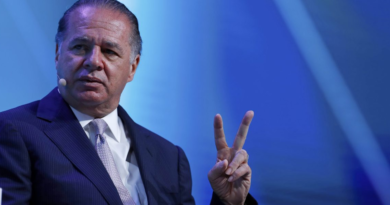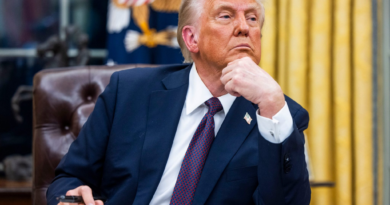'Markets are brutal': China's hedge funds flail in pre-Lunar New Year 'quant quake' as authorities promise more regulation
China’s quantitative hedge funds are admitting to unprecedented failures by their stock-trading models during one of the wildest two-week stretches in the market’s history.
One manager described it as the industry’s “biggest black swan event.” Another said its models “switched from doing it right to getting it wrong repeatedly.”
While historical data on China quant returns is limited, all signs point to record underperformance for such funds—a shock that Man Group has compared with the “quant quake” that wreaked havoc on US managers in 2007.
Leading quants each managing more than 10 billion yuan ($1.4 billion) lagged the CSI 500 Index by an average 12 percentage points in the two weeks ended Feb. 8 for the strategy tracking the stock gauge, bringing the year-to-date excess return to a negative 11.3%, according to industry data cited in a Huatai Securities Co. report.
After defying the nation’s stock slump in the past three years, quants were caught off guard by rapid market shifts and government intervention in the lead-up to the Lunar New Year holiday.
A week meant for national celebrations turned into “one sleepless night after another” for quants and their investors, Shanghai-based Hainan Semimartingale Private Fund Management LP wrote in a Feb. 8 letter seen by Bloomberg that also described the episode as a black swan event.
The debacle highlights how quants’ efforts to woo clients—this time by quietly adding better-performing smaller stocks in portfolios tracking benchmarks to boost returns—could backfire when going too far. While many of the managers expect their returns to improve as the market swings normalize, the industry is also facing its toughest-ever regulatory scrutiny and weaker players may struggle to recover.
“That was the first ever liquidity crisis triggered by a stampede from crowded quant strategies in China,” said Li Minghong, a fund-of hedge-funds manager at Beijing Yikun Asset Management LP. While such risks were anticipated, “I didn’t know it would come so early, so abruptly.”
Managers’ recounts of this year’s tumult have been largely consistent, according to their investor letters. The “fuse” was the “extreme polarization” last year in the valuations of falling large stocks and surging small caps, Li said.
That situation quickly reversed this year when small caps began to slump, prompting quant products with heavy exposure to trim holdings as some investors redeemed. The steep declines reached levels that triggered losses in derivatives known as “snowballs,” causing panic among holders and forcing brokerages to dump stock index futures.
In turn, that pushed up the hedging costs of quants’ market-neutral products, some of which were leveraged up as much as 300%, prompting them to unwind positions. Meanwhile, some so-called index-enhanced products chose to use index futures to replace stocks. Such moves all led to further selling in small caps, fueling a downward spiral in the market.
As government-led funds stepped in later, propping up exchange-traded funds tracking different indexes along the way, the market became more unpredictable to computer models trained with historical data. Regulators’ move to curb securities lending pushed up prices of stocks that some managers were shorting, imposing losses. Selling restrictions on so-called Direct Market Access products—which employ the leveraged market-neutral strategy—pushed managers to cut positions once allowed, according to Shanghai-based Mingxi Capital, which manages more than 1 billion yuan.
“A series of external interventions and changes made it hard for quant models to make predictions, or even adapt,” Mingxi wrote in a Feb. 8 article on its WeChat account. “The models switched from doing it right to getting it wrong repeatedly.”
Quants struggled to adjust because the market rally centered on certain indexes and their portfolios are spread more widely, according to Zhejiang High-Flyer Asset Management. In the week ended Feb. 8, just 11% of mainland-listed stocks gained more than the CSI 500 Index, which surged almost 13%, and only about a fifth of A-shares outperformed the 9.2% rally in the CSI 1000 Index.
Zhejiang High-Flyer’s products often hold more than 2,000 stocks each, suggesting they would “lose by a wide margin” to the indexes in such extreme conditions, it wrote in a letter to investors.
Upgraded Models
Managers from Qilin Investment to Lingjun Investment told investors they upgraded their models over the week-long holiday, and were seeking to recoup their alpha as the market recovers.
Qilin representatives couldn’t be reached. The other quant funds whose letters were cited in this article declined to comment further to Bloomberg.
Yanfu Investments LLC, founded by former Two Sigma Investments researcher Gao Kang, said it refrained from any human intervention to its models as it expects alpha to recover “naturally” before long, citing its experiences in previous market downturns. Excess returns in some products already “rebounded significantly” Feb. 8, it said in a letter to investors.
Record alpha losses were driven by a combination of factors and the chances of a repeat are “very small,” said Yanfu, which runs more than 10 billion yuan. The company is optimistic about the performance of stock quant products, and investors should “hold firmly,” it said.
The industry’s fate will depend in part on how regulators respond. The China Securities Regulatory Commission is preparing to roll out more rules for quants to maintain a stable market, state-run newspapers reported Thursday.
“Markets are brutal, but we totally understand the feelings of every client,” Mingxi wrote. “This is a market that needs to be revered, and it’s not easy for every player in it.”




